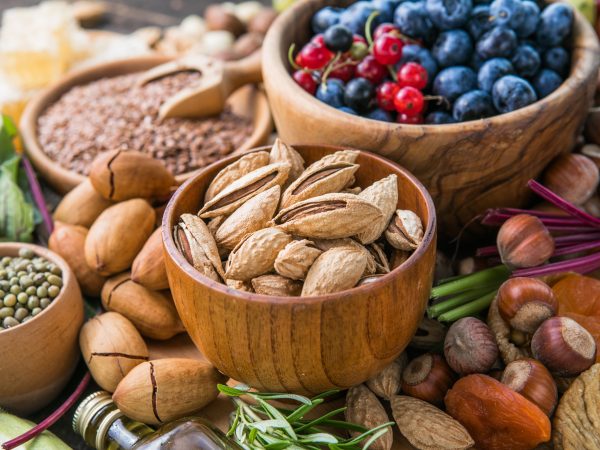Maintaining our overall health and well-being requires proper nutrition. The nutrients our bodies need to work at their best come from the food we eat. A healthy diet includes a range of foods from all the main food types. This is important for both our physical and mental health.
A healthy meal has effects on more than just your health. It has a huge impact on our mental health as well. Researchers have found that eating well can make you smarter, happier, and lower your risk of getting some mental illnesses. on the other hand, bad nutrition, which includes eating a lot of prepared and sugary foods, has been linked to a higher chance of chronic diseases.
A healthy, well-balanced meal gives us the nutrients our bodies need to stay fit and work properly. It lowers the chance of getting heart disease, diseases that come with getting older, and long-term conditions like diabetes. It also keeps our immune systems strong, which keeps us from getting illnesses and diseases.
Overview of Nutrition and Its Role in Health
Our overall health and well-being are greatly influenced by our nutrition. The field looks into the chemicals in food, how our bodies use them, and how they affect our health. Giving our bodies the nutrients they need to work at their best requires a well-balanced diet that includes a wide range of foods from all the major food groups. Food that is right for you is important for both your physical and mental health.
It has been shown to make people smarter, happier, and less likely to get some mental illnesses. Poor nutrition, on the other hand, including lots of prepared and sugary foods, has been linked to a higher chance of chronic illnesses. A healthy, well-balanced diet can help our physical and mental health, lower our chance of getting chronic diseases, and improve our general well-being.

The Impact of Diet on Mental and Physical Health
It’s impossible to overstate how important what you eat is for your physical and mental health. A diet high in sugar, processed foods, and bad fats can hurt your mental health, while the nutrients you eat are very important for staying mentally healthy.
A healthy meal full of nutrients is good for your mental health in many ways. Eating natural foods instead of processed ones can help your health, make it easier to concentrate, and lower inflammation. Eating foods that are high in nutrients can also help you sleep better and protect your mental health.
A healthy meal is good for your physical health as well as your mental health. A good diet can help you control your weight, which lowers your risk of getting long-term diseases like diabetes and heart disease. You can keep your blood sugar levels steady and improve the health of your heart by staying away from processed and sugary foods.
A well-balanced diet that gives you the nutrients you need for good mental and physical health should be your top priority. You can protect your cells from damage and lower your risk of age-related diseases by staying away from bad fats and too much sugar. Remember that what you eat affects more than just how you look. It also affects your mental health and general health. Pick things that are good for your mind and body.
Mental Health Benefits of a Healthy Diet
Having a good food has a huge effect on our mental health. Eating a lot of whole foods can help your health, help you concentrate and focus better, lower inflammation, help you sleep better, and boost your immune system.
Whole foods like fruits, veggies, whole grains, and lean meats that are high in vitamins and important nutrients give our brains the fuel they need to work at their best. Neurotransmitters, like serotonin and dopamine, are very important to our happiness and mental health. These nutrients help keep them in check. By feeding our bodies foods that are high in nutrients, we can improve our happiness and think more clearly.
A good diet can also lower inflammation all over the body, even in the brain. People who have chronic inflammation are more likely to have sadness and other mood problems. Eating foods that reduce inflammation, like fish and olive oil that are high in omega-3 fatty acids, can help keep inflammation in check and improve mental health.
To keep your mental health in good shape, you need to get enough sleep. Eating well can help you sleep better by giving your body the nutrients it needs to make and control hormones properly. Leafy veggies and brown rice are two foods that are high in magnesium and can help you relax and sleep better.
Lastly, a healthy, well-balanced food helps keep our immune systems strong, which is a key part of keeping our minds healthy. Fruits and veggies, which are high in vitamins and minerals, give your body the nutrients it needs to keep your immune system strong and protect you from illnesses that can hurt your mental health.
Physical Health Benefits of a Balanced Diet
Not only is a healthy food good for our mental health, it is also very important for our physical health. One of the best things about it is that it helps you control your weight. Fruits, vegetables, lean meats, and whole grains make up a healthy diet that keeps calorie intake in check and gives the body the nutrients it needs. This keeps you from getting fat and gain weight, which lowers your risk of getting long-term diseases like heart disease, diabetes, and some cancers.
A healthy diet also makes sure that our bodies get all the nutrients they need to work at their best. We can get the vitamins, minerals, and antioxidants our bodies need to support bodily functions and keep overall health by including a range of foods in our diets. This is especially important if you want to eat less prepared foods, which usually have a lot of unhealthy fats, extra sugars, and fake ingredients that are bad for your health.
Whole grains, fruits, and veggies are all high in fiber, which helps keep your digestive system healthy and keeps you from getting constipated. It also helps you control your weight by making you feel full and keeping your blood sugar levels in check.
A varied diet also helps keep your heart healthy by focusing on foods that are low in fatty and trans fats. Eating foods that are high in omega-3 fatty acids, lean meats, and whole carbs can help your heart health by lowering your cholesterol and inflammation. This lowers the chance of heart disease and makes the heart work better generally.
Olive Oil as an Essential Part of Your Diet
Not only does olive oil taste great with food, it is also an important part of a healthy diet. Along with improving heart health, it has many other benefits that are good for your general health.
One of the best things about olive oil is that it can help keep your heart healthy. It has a lot of polyunsaturated fats, which help lower bad cholesterol and raise good cholesterol. This lowers the risk of heart disease in the long run. Olive oil also has polyphenols in it, which are strong antioxidants that fight inflammation in the body. Olive oil lowers inflammation, which protects blood vessels and arteries from damage and makes the heart healthier generally.
Olive oil is good for your heart and also has vitamins that are good for you. These antioxidants help protect cells in the body from oxidative stress caused by free radicals. This lowers the risk of getting Alzheimer’s and some types of cancer that come with getting older. Additionally, the antioxidants in olive oil have been shown to reduce inflammation, which can help avoid chronic diseases and improve health in general.
Adding small amounts of olive oil to your daily food is suggested if you want to get the most health benefits from it. You can dress salads with it, dip bread in it, or use it as cooking oil to sauté veggies. As part of a healthy, well-balanced diet, olive oil can help your heart stay healthy, lower inflammation, and give you many other health benefits.
Brain Health: How Nutrition Plays a Crucial Role
Nutrition is a very important part of keeping your brain healthy and boosting your general cognitive function. A few nutrients work directly with the brain to help it grow, stay healthy, and be in good shape generally.
A well-balanced diet must include complicated carbohydrates, lean proteins, and fatty acids for the brain to work at its best. Because they are complex, carbs like those in brown rice and starchy foods give the brain a steady supply of glucose, which is its main power source. This makes it easier to focus, remember things, and think more clearly in general.
A lot of amino acids are found in lean foods like chicken, fish, and eggs. Amino acids are what neurotransmitters are made of. Neurotransmitters send messages between brain cells and have a big impact on mood, thinking, and awareness.
Fatty acids are very important for brain health. Omega-3 fatty acids can be found in fish, nuts, and flaxseeds. Because they help brain functions like memory, learning, and attention, these fatty acids are very important for the structure and growth of the brain.
Limiting processed and fatty snacks, on the other hand, is important because they can cause blood sugar to rise and inflammation, both of which are bad for brain health.

Conclusion
To sum up, eating a healthy diet is important for getting and keeping good health, which includes good brain function. It may be tempting to rely on famous diet pills or vitamins, but it is important to remember that eating is a complicated system with many parts that work together. If you only take supplements or stick to certain meals without thinking about what your body needs generally, you could end up with imbalances and deficits.

